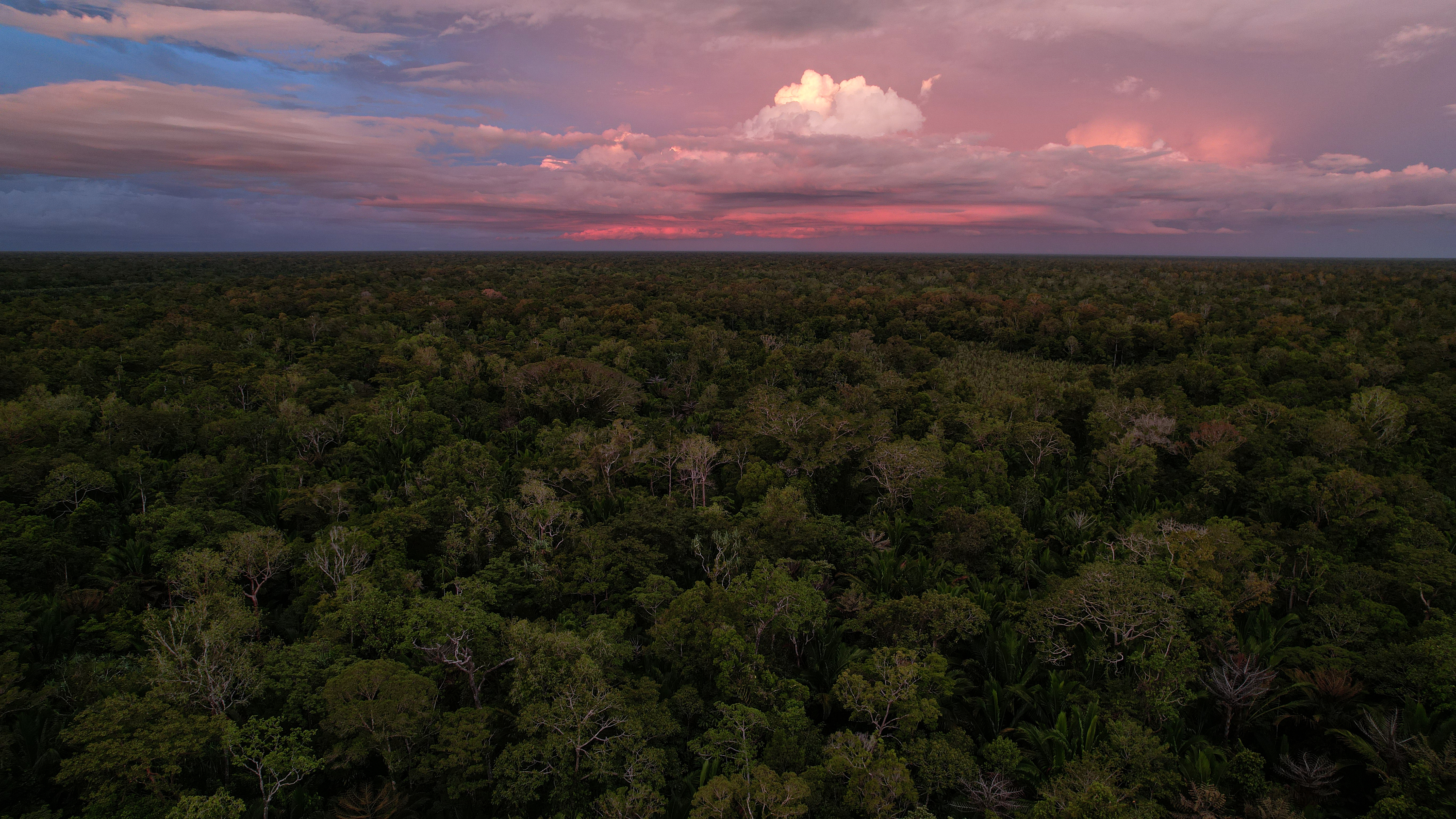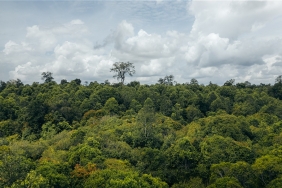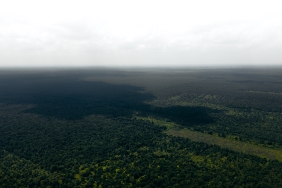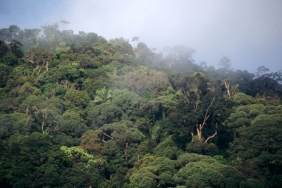WWF AND TOYOTA GLOBAL PARTNERSHIP FOR LIVING ASIAN FOREST PROJECT AND CLIMATE CHANGE
TOKYO (July 20, 2016) - WWF and Toyota Motor Corporation are embarking on a five-year partnership with the goal of accelerating the global transition to sustainability. Through this partnership, they will work together to promote biodiversity conservation, increase environmental awareness and accelerate the shift toward a carbon-free society.
Toyota is the first automotive company and the first Japanese company to sign the Global Corportate Partnership with WWF. This partnership agreement officially began on July 1, 2016.
Under this partnership, Toyota will support the Living Asian Forest Project, a series of WWF activities, ongoing and in planning, to conserve tropical forests and wildlife in Southeast Asia, including in WWF's priority sites of Kalimantan and Sumatra in Indonesia. Furthermore, these activities will also expand to include the Greater Mekong region.
The program will also seek to improve the sustainability of natural resources and commodities such as timber, paper and pulp, palm oil and natural rubber. Unsustainable production and use of these commodities is one of the main causes of deforestation and increasing threats to endangered species in these regions.
Toyota will provide US$1 million to the Living Asian Forest Project in 2016 and will continue this support for the next 5 years. Toyota's support to the program strengthens its efforts to achieve one of the six challenges in the Toyota Environmental Challenge 2050, which is to create a society that lives in balance with nature in the future. The goal of the Toyota Environmental Challenge 2050 is to reduce Toyota's environmental footprint to zero and also create value and benefits in society in the face of global environmental problems.
WWF and Toyota recognize that the sustainable production and utilization of natural rubber is necessary for the conservation of forest ecosystems, and therefore will specifically have activities to promote sustainable natural rubber. As the main material for the production of automobile tires, the demand for natural rubber is expected to continue to increase in the coming years.
Toyota recognizes the environmental and social issues that may arise because of this, so Toyota will collaborate with the industry and other stakeholders to contribute to determining international standards for sustainable natural rubber and other activities carried out by WWF.
During this partnership, WWF and Toyota will also work together to realize a carbon-free society. In order to meet the CO2 emission-free target in the Toyota Environmental Challenge 2050, Toyota has joined the Science Based Target initiative that aims to assist companies' efforts to tackle climate change.
Didier Leroy, Executive Vice President of Toyota, said: "We share WWF's vision: to achieve a sustainable society and continue to make planet Earth a place to live for generations to come. As we embark on tangible efforts to achieve our targets in the 2050 Environmental Challenges, we decided that joining forces with non-governmental organizations that are experts in their fields was essential. These partnerships and programs like the "Living Asian Forest Project" are some of the most effective ways for companies like ours to make a positive impact and raise awareness about the importance of sustainable resource management among employees, suppliers and customers.
Marco Lambertini, Director General of WWF International, said: "WWF is delighted to join forces with Toyota to accelerate the efforts needed to prevent the degradation that threatens the natural systems on which we depend. Science has never been more clear nor has awareness of the problems and solutions to many of the environmental issues the world faces today ever been greater. We need more companies like Toyota to step forward and find solutions to these problems. WWF values Toyota's vision of helping make a safer, healthier and more sustainable world a reality for future generations and the planet."
Arnold Sitompul,Conservation Director WWF Indonesia said: "One important outcome of the Partnership is the strengthening of our efforts in the conservation of tropical forest ecosystems in Kalimantan and Sumatra. Both are important habitats of endangered species and also important places to prove sustainable natural resource management can be applied."
---complete---
Note to Editor:
WWF Global Corporate Partnership
These partnerships are based on a shared understanding of the problem, a common ambition or activity and a willingness to speak publicly. There are three types of joint work with corporate partners in this partnership: (a) promoting sustainable business practices; (b) communication and awareness; and (c) philanthropy.
Toyota's Environmental Challenge 2050
In October 2015, Toyota announced the Toyota Environmental Challenge 2050 which aims to contribute to the sustainability of the environment on a global scale. Based on forecasts of the earth's condition in the next 20 to 30 years, Toyota seeks to address new environmental challenges that will support efforts to tackle major environmental issues such as climate change, clean water scarcity, depletion of natural resources, and biodiversity degradation. The Toyota Environmental Challenge 2050 targets to reduce the negative impacts of producing and driving cars to zero, and to create value and benefits for society. The Toyota Environmental Challenge 2050 consists of 6 individual challenges that fall under three main areas: developing better cars, producing better cars, and enriching people's lives. http://www.toyota-global.com/sustainability/environment/challenge2050/
Science Based Targets initiative
Science Based Targets is a collaborative initiative between WWF, CDP, WRI and the UN Global Compact to support companies in setting science-based emissions reduction targets to keep global warming below the 2 degree threshold.
About WWF
WWF is one of the largest independent conservation organizations, with more than five million supporters and a global network active in more than 100 countries. WWF's mission is to halt environmental degradation and build a future where people can live in harmony with nature, through conserving the world's biodiversity, ensuring the sustainable use of natural resources and promoting the reduction of pollution and overconsumption.
Visit www.panda.org/news for the latest news
AboutToyota
Toyota is a global automobile company that has been operating since 1937. Toyota currently conducts automobile production activities in 29 countries and automobile sales activities in more than 170 countries.
For more information, please contact:
David Hirsch
WWF International
Email: dhirsch@wwfint.org
phone: +41 22 364 9554
Asami Yamamoto
WWF Japan
Communication & Marketing
Email: press@wwf.or.jp
phone: +81 3 3769 1714





